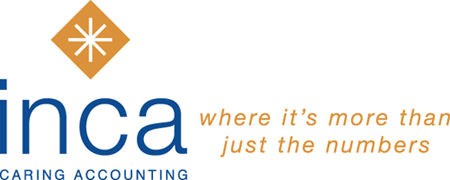George Osborne has delivered the Government’s summer budget
Now that Chancellor George Osborne has delivered the Government’s summer budget, we have the opportunity to consider how it will affect our personal and business lives.
While every individual’s circumstances will be unique, there were two ‘stand-out’ announcements in particular which have huge implications for many of Inca’s clients – those who are owners of small limited companies, and those who are landlords.

We take a quick look at each of these situations below:
Limited companies: Dividend shake-up
Setting up as a limited company, drawing a minimum salary and taking maximum income in the form of dividend has long been considered a tax-efficient strategy for the small business owner, but the summer 2015 budget has changed this situation. From April 2016 director dividends will no longer be tax-free to basic rate tax payers (those earning less than £42,385 per annum). Instead, only the first £5,000 of dividends will be tax-free, with the remainder being subject to tax starting at 7.5%. Under these new rules, a business owner generating an annual salary of £10,600 and receiving dividends of £25,000, will find themselves faced with a tax bill of £1,500 – whereas under current rules, there would be no tax liability at all.
The situation becomes more pronounced for higher rate tax payers who will have to pay 25% on these additional dividends, increasing in April 2016 to 32.5%. Combining this with the 20% corporation tax already paid by the business, the result is a hefty 46% total tax bill. Given that an equivalent sole trader or partnership member would be taxed at 40% plus a further 2% Class 4 National Insurance, the company owner will be left 4% worse off in tax than an equivalent self-employed business owner
So what now for the small company owner?
It’s likely that many small business owners will no longer find the limited company such an attractive option, and will look at switching to become either a sole trader or a limited liability partnership. Either way, entrepreneurs are going to be paying more tax and national insurance.
There is however a benefit to come out of these changes for companies that have one director/shareholder drawing up to the 40% limit in salary and dividends – and having a partner or spouse who is a higher rate tax payer: While currently there is no benefit in making the partner/spouse a shareholder as they’d be taxed immediately on dividends received, the new rules allow you to make them a shareholder and pay them up to £5000 per annum in tax-free dividends.
If you run a small limited company, the first thing you should do is contact Inca to have a chat about your situation, so that we can help you understand the likely impact. The new taxation will commence in April 2016, so using the time between now and then to plan for dividend income and/or a change of status will be important to mitigate the impact for you and your family.
Landlords: Budget changes
If you rent out a room in your own home, then this budget was probably good news for you. Under current tax rules, you’re allowed to earn £4,250 per year tax-free from renting out a room in your own home (half of this if the property is owned jointly). From April 2016 this figure increases to £7,500 per annum. This will save a basic rate tax payer up to £650 per year (up to £1,300 per year for a 40% tax payer).
It’s not all good news though. If you rent out a property – other than your own home, then the budget changes are less likely to be beneficial. There are 2 key areas where the changes could have a negative impact on your taxation.
The first of these is the plan to restrict the tax relief you can claim on the interest on a buy to let mortgage to 20%. The change will come into effect in April 2016, and means that if you are a higher rate tax payer, you will lose half of the tax relief you would otherwise have received from the interest on the mortgage on your property.
The second change is the planned abolition of the wear and tear allowance for furnished property. Currently, if you rent out a furnished property, you are allowed to choose to either claim tax relief on the replacement of furnishings, or alternatively make a general claim amounting to 10% of the annual rent, to cover the cost of replacing furniture and similar equipment. Effective from April 2016, you will only be able to claim for the actual cost of replacing damaged or worn out items. If your tenants treat your property well, so that there’s relatively little need to replace furnishing annually, then this change is likely to increase the tax you will need to pay on your rental property. This impact will apply to all landlords, not just those in the higher rate tax brackets.
So What Now?
If you think you’re affected by these significant changes, then the next step is to seek advice with a view to creating a plan of action between now and early April 2016 to minimise the impact of these changes as much as possible.
Keep calm and call Inca Caring Accounting!
Whether you are the owner of a small limited company or a landlord, if you’re concerned about the implications the budget is going to have for you, call us now to talk things through. Phone: 01235 868888 or Email: [email protected].




